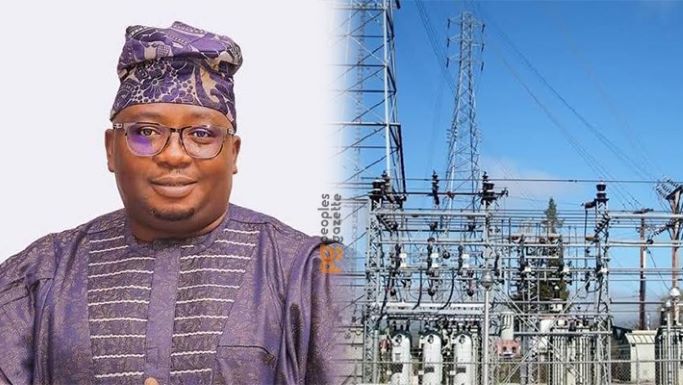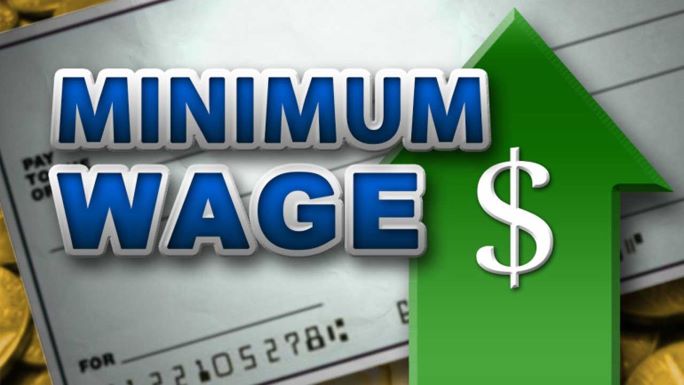Electricity Debacle: Is Power Minister Champion or Collaborator?


By Nnanke Harry Willie
Nigeria’s Minister of Power, Adebayo Adelabu is a nice man. The ebullient minister is so nice he gifted Nigeria’s well-entrenched electricity cartel an astronomical 300% tariff increase in a prejudiced belief that electricity woes would be a thing of the past once he “finds the courage” to accede to their hitherto thought ‘impossible’ demands.
In defence of his incredible gift to the power providers, Minister Adelabu lashed out at hapless Nigerians, blaming us for wasting electricity. For instance, he said Nigerians leave their fridges and freezers on when they are going to sleep or going out. He added that Nigerians put on their air-conditioners when they don’t need them. The incoherence of his diatribes against Nigerian consumers to the issue of exponential tariff increase was so absurd that he had to make a volte-face and apologise to Nigerians almost immediately after people who truly love him must have told him “bros, you no try at all o”.
Indeed, Nigerians were flumoxed and in shock as the Minister of Power and National Electricity Regulatory Commission (NERC) stepped out gleefully to defend this untenable tariff hike. thus making many wonder: “is this minister a champion of the masses or collaraborator of the usurpers?”
Power blackout: Nigerians frustrated, want speedy solution to crisis
Enter the Electricity Debacle
The harsh reality is that for millions of Nigerians already grappling with erratic power supply and exorbitant electricity bills, the tariff hike represents yet another blow to their livelihoods. The inability to afford basic utilities not only exacerbates poverty and inequality but also hampers economic productivity and social development.
In an unsurprising turn of events, the Nigerian power sector has descended into further chaos . Despite high hopes and promises of reform, Adelabu’s tenure has been marred by a series of blunders that have left Nigerians grappling with even worse electricity supply and exploitative tariff.
The April 3, 2024 announcement by the Nigerian Electricity Regulatory Commission (NERC) introducing an astronomical increase in electricity tariffs, raising rates from N68 to N225 per kilowatt-hour is collapsing not only businesses but also households even with the unkept promise of delivering 20 to 24 hours electricity supply to the affected Band A consumers.
Retroactive nature of increase
The decision is untenable in many ramifications and must be reversed as immediately as it was introduced. In fact, it was actually made retroactively, a patently illegal move. the electricity debacle threatens to deepen social unrest and political instability.
Little wonder it has drawn sharp criticism from consumers, labour and advocacy groups as well as well-meaning Nigerians who argue that the hike will further burden already-struggling households and businesses.
Illegality of increase in electricity tariff
More importantly, the minister of power and NERC broke the rules of the NERC guidelines for major or extra-ordinary tariff increases as captured in its guidelines on rate review which stipulates that there will be a public presentation of the proposed tariff increase and “The Commission shall within three(3) months of publishing the Consultation Paper, develop the draft Tariff Order and carry out all necessary consultations with stakeholders and the public.”
The surreptitious nature of this audacious upward review which has led to the current electricity debacle defies all tenets of transparency, fairness,and legality. It also smacks of a frightening sample of state capture!
A desperate attempt to explain that only 15% of the top electricity on Band A would be affected has been debunked. As expected, the ‘smart’ DisCos have designated many B and C band areas as Band A and are now struggling to justify the new billing structure by denying the other purported Band consumers scarce electricity and bringing the SMEs, which is the backbone of any developing economy, to near-comatose state.
Electricity: Power minister bemoans activities of saboteurs, cartels
Complainer-in-Chief
Less than a month after his ill-advised tariff hike, the minister has himself become the complainer-in-chief. Hear him: “We have saboteurs, cartels, and those who prefer to perpetrate evil for their selfish interests to frustrate our efforts,”. But this is not news to discerning Nigerians. It is a fact that ministers of power before him have echoed and Nigerians are well aware of. So, how come he played into their hands?
Adelabu has also suggested the ridiculous for power stability. He said: “After the industrial areas have had light during the day, we can shift power at night to residential areas because production takes place during the day.” Who told this honourable minister that production doesn’t take place at night in factories? Such embarrsing postulation exposes a somewhat infantile disposition to the vagaries of the economy and power consumption pattern.
There is also a curious absence of transparency and accountability from the Federal Government regarding the electricity subsidy status, which Nigerians suddenly learned from the power minister was estimated at about N3 trillion for 2024. How did he arrive at this figure especially after it was revealed that a major component of the debt was unpaid electricity bills by many MDAs, including the offices of the power ministry and sections of the presidency!
Estimated billing racket
Nigerians would also like to know if the criminal estimated billing methodology of the DisCos whereby outrageous bills are generated for post-paid consumers are also included in this trillion-Naira debt. There are many examples of how post-paid consumers who migrated to pre-paid meters suddenly saw their monthly electricity consumption bills fall from N75,000 and above to below N10,000. It is therefore no surprise that the DisCos are coming up with all manner of excuses for not meeting their metering targets.
Alleged prepaid meters fund fraud
The Power Minister, Adelabu has also alleged that there has been mismanagement of funds earmarked for the electricity sector, including the N32 billion meant for the provision of three million prepaid meters in 2003. Strangely, rather than addressing these fundamental issues, Nigerians are being forced to pay more for less.
Adelabu’s seeming lack of understanding of the complex dynamics of the Nigerian electricity market has been a major contributing factor to the current crisis. Experts have criticized the minister for his failure to grasp the intricate web of interests and power dynamics that have long plagued the sector.
“Adelabu came in with a lot of enthusiasm, but he clearly lacked the necessary expertise and experience to navigate the treacherous waters of the Nigerian power industry,” said Dr. Amina Salihu, a renowned energy analyst. “His naivety has been exploited by the entrenched interests, and the result is a further deterioration of an already dire situation.”
Broken Hopes?
As the tariff hike took effect, Nigerians on the acclaimed A Band had hoped for a corresponding improvement in electricity supply. However, the opposite has occurred, with many parts of the country experiencing even more frequent and prolonged power outages especially in highly disfavoured C to E bands.
“It’s like a cruel joke,” lamented Fatima Abubakar, a small business owner in Lagos. “We were promised better electricity, but all we’ve gotten is more darkness and higher bills. It’s a complete betrayal of the people’s trust.”
Analysts and industry stakeholders agree on the need to focus on transparency, accountability, and a genuine commitment to improving service delivery. There is a need for government to take decisive action against the corrupt elements within the industry, who have long exploited the system for their illicit and unpatriotic gains.
“Adelabu’s tenure thus far has been a stark reminder of the need for competent and experienced leadership in the power sector,” said Salihu. “Unless drastic measures are taken to address the root causes of the crisis, Nigerians will continue to suffer the consequences of this electricity debacle.”
Challenge of governance
In the realm of governance, few challenges are as intricate and vital as managing a nation’s energy sector. Amidst the labyrinth of policies, regulations, and stakeholders, a misstep can lead to dire consequences for millions of citizens. The minister’s catastrophic misjudgment has left the nation grappling with an electricity debacle which is spilling into the socio-economic arena at the speed of light.
The decision to greenlight such an incredible tariff hike, without conducting a comprehensive review of its implications, reeks of incompetence. Adelabu, it seems, failed to grasp the basic principles of supply and demand, oblivious to the fact that increasing tariffs without addressing underlying inefficiencies only serves to burden consumers further, without guaranteeing any tangible improvements in service.
However, the spotlight of scrutiny cannot solely be directed at Adelabu; the Tinubu administration must also share culpability for this debacle. One cannot help but wonder why a government purportedly committed to the welfare of its citizens would greenlight such an extortionist tariff without conducting a holistic review of its potential ramifications. One also wonders, what is the role of the Coordinating Minster of the Economy? Tinubu’s ministers and officials cannot continue to work in silos otherwise we shall get steeped into even worse economisc and social malaise!
The onus lies the on regulatory authorities, policymakers and the fedaeral government to heed the voices of the people and chart a course towards a more equitable and sustainable energy future.
Immediate tariff reversal
Finally, whether it was a lapse in judgment, or a deliberate act of negligence/connivance by fifth columnists, President Bola Tinubu should ensure that this crippling and extortionist electricity tariff is reversed immediately. Failure to do so risks perpetuating this electricity debacle and the cycle of exploitation and disenchantment that undermines the country’s aspirations for prosperity and progress. In the meantime, it has led to socio-economic dysfunction and more poverty in the land!











